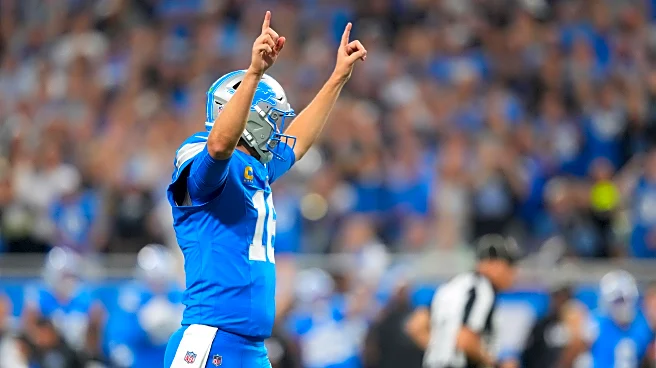The words “10-second runoff” open deep scars for Detroit Lions fans. Back in 2017, a little-known rule cost the Lions one more play to beat the Atlanta Falcons when they were just a yard away from victory.
But on Sunday against the Chicago Bears, a wild sequence involving the 10-second runoff rule worked in the Lions’ favor.
With the first half winding down, Jared Goff took a deep shot down the right sidelines to rookie receiver Isaac TeSlaa. The wideout made an impressive one-handed grab, got his knee in-bounds, and set the Lions up first-and-goal from the Bears 4-yard line. However, the time on the clock continued to run, forcing the Lions to scurry downfield to spike the ball before the clock ran out. It appeared, they were just a second too late and lost the opportunity to capitalize on the big play.
However, as Bears players were running off the field into the locker room, the referees went to the mic and said there were to be six seconds remaining on the clock. So what happened?
FOX NFL analyst Mike Pereira explained it well.
When TeSlaa’s knee hit the ground in-bounds, there were about 16 seconds left. The side judge waved his arms to stop the clock, but the clock operator left the time running. That required a review from officials. And when the review confirmed that TeSlaa was in bounds and the clock should be running, that “overturn” required a 10-second runoff from the moment TeSlaa was down—leaving the Lions with six seconds.
That proved to be a huge decision, as Amon-Ra St. Brown scored a touchdown with the remaining time left, giving Detroit an extra seven points before halftime, and a 28-14 lead.










